Introduction
In the dynamic landscape of business, the realm of Customer Relationship Management (CRM) is continuously evolving, shaped by technological advancements, shifting consumer behaviours, and emerging market trends. As we venture into 2024 and beyond, businesses are embracing innovative strategies and cutting-edge technologies to redefine their approach to CRM. This comprehensive article delves into the latest trends shaping CRM in 2024 and explores the transformative impact they have on businesses worldwide. Building strong and lasting customer relationships is more critical than ever. Customer Relationship Management (CRM) has become an essential tool for businesses of all sizes, enabling them to manage interactions, personalize experiences, and ultimately drive customer loyalty and growth. As technology and customer expectations continue to evolve, so too are the trends shaping the future of CRM in 2024 and beyond.
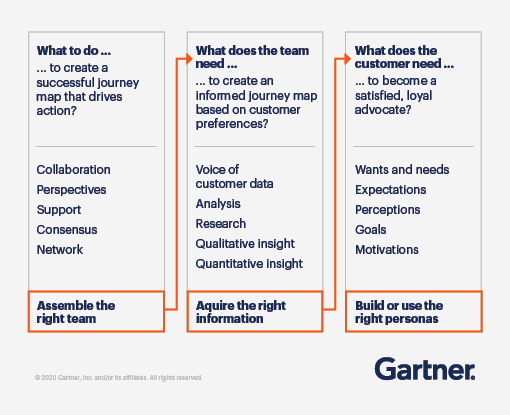
The Rise of AI and Machine Learning:
Artificial Intelligence (AI) and Machine Learning (ML) are rapidly transforming the CRM landscape. These technologies are enabling businesses to:
- Gain deeper customer insights: AI algorithms can analyse vast amounts of customer data, uncovering hidden patterns and trends that can inform personalized marketing campaigns, product recommendations, and service experiences.
- Automate repetitive tasks: Chatbots powered by AI can handle routine customer inquiries, freeing up human agents to focus on more complex issues and building genuine relationships.
- Predict customer behaviour: Machine learning can predict customer churn, identify potential upsell opportunities, and personalize experiences based on individual needs and preferences.
A 2023 study by Gartner predicts that by 2024, 50% of CRM implementations will use machine learning or AI.
Artificial intelligence (AI) is revolutionizing CRM by empowering businesses to extract actionable insights from vast volumes of data. AI-powered analytics tools leverage machine learning algorithms to analyse customer interactions, predict future behaviour, and identify patterns and trends. By harnessing the power of AI, businesses can uncover valuable insights into customer preferences, anticipate their needs, and personalize their experiences in real-time. From predictive analytics and sentiment analysis to customer segmentation and churn prediction, AI-driven insights enable businesses to make data-driven decisions, optimize marketing strategies, and enhance customer satisfaction and retention.
The Shift Towards Omnichannel Engagement:
Customers today interact with brands across various channels, including social media, mobile apps, email, and in-store interactions. To provide seamless and consistent experiences, businesses need to adopt an omnichannel CRM strategy. This involves:
- Centralizing customer data: Integrating data from all touchpoints allows businesses to create a unified view of each customer, enabling them to personalize communication and service delivery.
- Providing consistent messaging: Regardless of the channel used, customers should encounter consistent branding, messaging, and offers, creating a cohesive brand experience.
- Offering seamless transitions: Customers should be able to seamlessly switch between channels without losing context or needing to re-enter information.
A study by Zendesk reveals that 74% of customers expect consistent experiences across all channels.
Omnichannel CRM strategies enable businesses to seamlessly integrate these channels, providing customers with a cohesive and consistent experience across their entire journey. By centralizing customer data and communication channels, businesses can deliver personalized interactions, streamline processes, and eliminate silos, ensuring a seamless transition between online and offline channels. Omnichannel engagement fosters stronger customer relationships, enhances brand perception, and drives revenue growth by meeting customers wherever they are and whenever they choose to engage.
The Growing Focus on Hyper-Personalization:
Customers expect brands to understand their individual needs and preferences. Hyper-personalization leverages data analytics and AI to deliver highly customized experiences for each customer. This can include:
- Personalized content and recommendations: Product recommendations, marketing materials, and website content can be tailored to individual customer interests and purchase history.
- Dynamic pricing and offers: Pricing and promotions can be adjusted based on customer segments or individual behaviour patterns.
- Predictive customer service: Proactive outreach and support can be offered based on anticipated customer needs and potential issues.
By 2025, the market for hyper-personalization technologies is expected to reach $1.1 trillion globally.
Hyper-personalization has emerged as a cornerstone of modern CRM, enabling businesses to deliver tailor-made experiences that foster deeper connections and drive engagement. By leveraging advanced data analytics, artificial intelligence (AI), and machine learning algorithms, businesses can glean valuable insights into customer behaviour, preferences, and purchase patterns. Armed with this knowledge, they can create highly targeted marketing campaigns, personalized product recommendations, and customized communication strategies that speak directly to each customer’s unique needs. Hyper-personalization not only enhances customer satisfaction but also cultivates brand loyalty and drives long-term profitability.
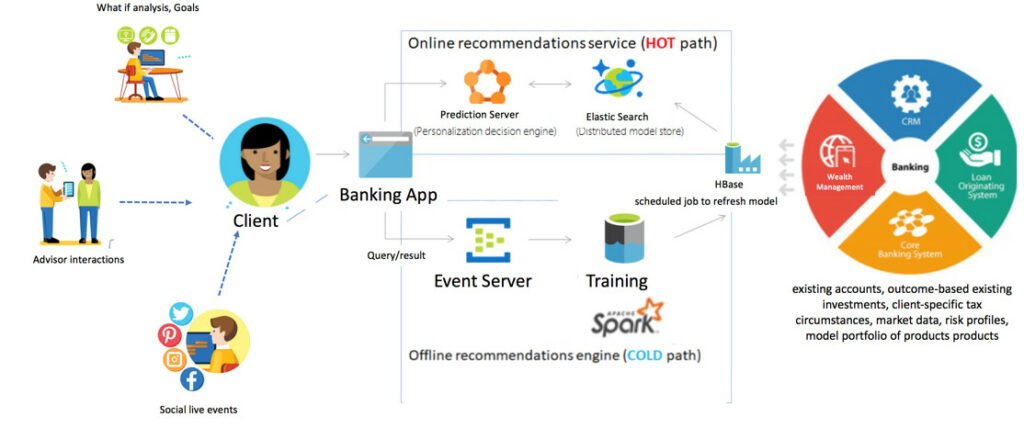
Embracing the Cloud and Mobile-First Approach:
Cloud-based CRM solutions offer several advantages, including scalability, accessibility from anywhere, and improved collaboration. Furthermore, as mobile usage continues to rise, businesses need to ensure their CRM solutions are optimized for mobile devices. This enables sales and service teams to access customer information and interact with customers on the go, leading to improved responsiveness and customer satisfaction.
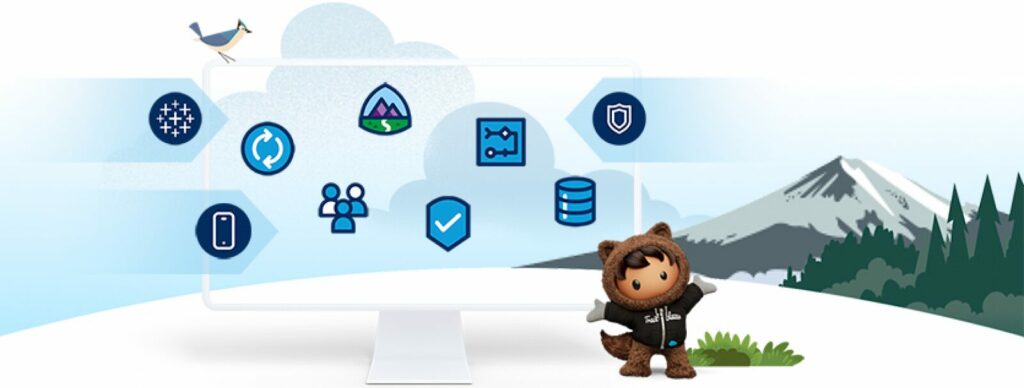
Prioritizing Security and Data Privacy:
As customer data becomes increasingly central to CRM strategies, ensuring data security and privacy is paramount. Businesses need to:
- Implement robust security measures: This includes regular security audits, data encryption, and employee training on data security best practices.
- Comply with data privacy regulations: Businesses need to be aware of and comply with data privacy regulations like GDPR and CCPA, which govern the collection, use, and storage of personal data.
- Be transparent about data practices: Customers have the right to know how their data is being collected, used, and shared. Businesses should have clear and accessible privacy policies that outline these practices.
A 2023 IBM study reveals that data breaches cost businesses an average of $4.24 million globally.
With the implementation of stringent data security measures and compliance with regulations such as the General Data Protection Regulation (GDPR) and the California Consumer Privacy Act (CCPA), businesses are taking proactive steps to protect customer privacy and earn their trust. From encryption and multi-factor authentication to robust access controls and regular security audits, businesses are investing in robust data security infrastructure to safeguard sensitive information and mitigate the risk of data breaches. By prioritizing data privacy and transparency, businesses can build trust with their customers, foster loyalty, and maintain a competitive edge in the marketplace.
Transforming CRM with AI: A Marketing Approach
As businesses navigate the ever-evolving landscape of customer relationship management (CRM), the integration of artificial intelligence (AI) is revolutionizing the way organizations interact with their customers. In this article, we explore the key trends in CRM for 2024, with a focus on the transformative impact of AI.
1. Generative AI Enhancing CRM
Generative AI is reshaping CRM by automating repetitive tasks, streamlining operational workflows, and elevating customer relationships to new heights. By harnessing the power of generative AI algorithms, businesses can unlock insights from vast troves of data, enabling them to deliver personalized experiences tailored to each customer’s unique needs and preferences. From automating email marketing campaigns to predicting customer behavior, generative AI is driving efficiency and effectiveness in CRM.
2. Data Consolidation for Actionable Insights
In today’s data-driven world, organizations are consolidating data from disparate sources to gain a holistic view of their customers. By leveraging third-party data storage and analytics platforms, businesses can glean actionable insights from customer interactions, enabling them to make informed decisions and drive strategic initiatives. From customer segmentation to predictive analytics, data consolidation is empowering businesses to deliver targeted marketing campaigns and enhance customer engagement.
3. Customizable CRM Components
The era of one-size-fits-all CRM suites is giving way to customizable components that cater to the specific needs of businesses. By offering a la carte CRM solutions, vendors are enabling organizations to pay only for the features and functionalities they require, while allowing for seamless integration with existing systems. This modular approach to CRM empowers businesses to build tailored solutions that align with their unique objectives and workflows, driving efficiency and agility in customer relationship management.
4. Simplifying Workflows with Low-Code Tools
Low-code, no-code tools are democratizing the CRM landscape, empowering business analysts to create custom workflows and experiences without the need for extensive coding knowledge. By providing intuitive drag-and-drop interfaces and pre-built templates, these tools enable organizations to streamline processes, automate tasks, and enhance the customer experience. From building interactive chatbots to designing personalized landing pages, low-code tools are driving innovation and accessibility in CRM.
5. Achieving Balance in Customer Service
Achieving the right balance between human and machine interactions is crucial in delivering exceptional customer service. By leveraging AI-powered chatbots and virtual assistants, organizations can provide immediate assistance to customers while preserving the human touch. From handling routine inquiries to escalating complex issues to human agents, this hybrid approach ensures that customers receive timely and personalized support, leading to increased satisfaction and loyalty.
The Future of CRM: Collaboration and Integration:
The future of CRM lies in collaboration and integration. Here are some key trends to watch:
- CRM integration with other business systems: Integrating CRM with ERP, marketing automation, and other business systems can create a single source of truth for customer data, enabling seamless information sharing and improved decision-making.
- Collaboration between sales, marketing, and customer service: Breaking down silos between departments and fostering collaboration is crucial for delivering consistent and personalized customer experiences.
- The rise of the “Customer Data Platform” (CDP): CDPs are technologies that unify customer data from various sources, enabling businesses to gain a holistic view of their customers and personalize experiences across all touchpoints.
Conclusion:
The landscape of CRM is evolving rapidly, driven by advancements in technology, changing customer expectations, and the need for businesses to adapt and thrive in a competitive environment. By embracing AI, omnichannel engagement, hyper-personalization, and prioritizing security and data privacy, businesses can leverage the power of CRM to forge stronger customer relationships, drive loyalty, and achieve sustainable growth in the years to come.
In conclusion, the integration of AI is revolutionizing CRM in 2024, enabling businesses to unlock new opportunities for growth and innovation. By harnessing the power of generative AI, consolidating data for actionable insights, embracing customizable CRM components, simplifying workflows with low-code tools, and achieving balance in customer service, organizations can stay ahead of the curve and deliver exceptional experiences that drive customer satisfaction and loyalty.

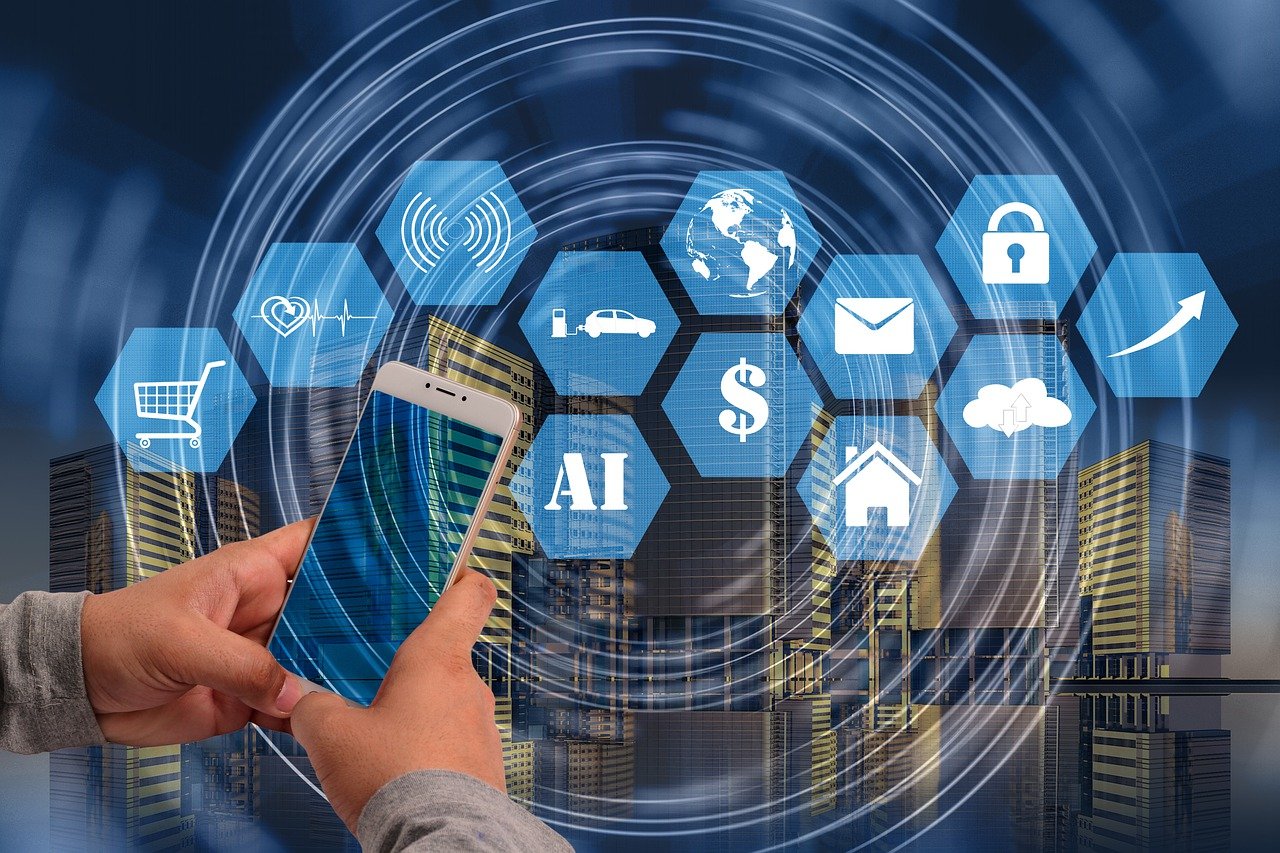
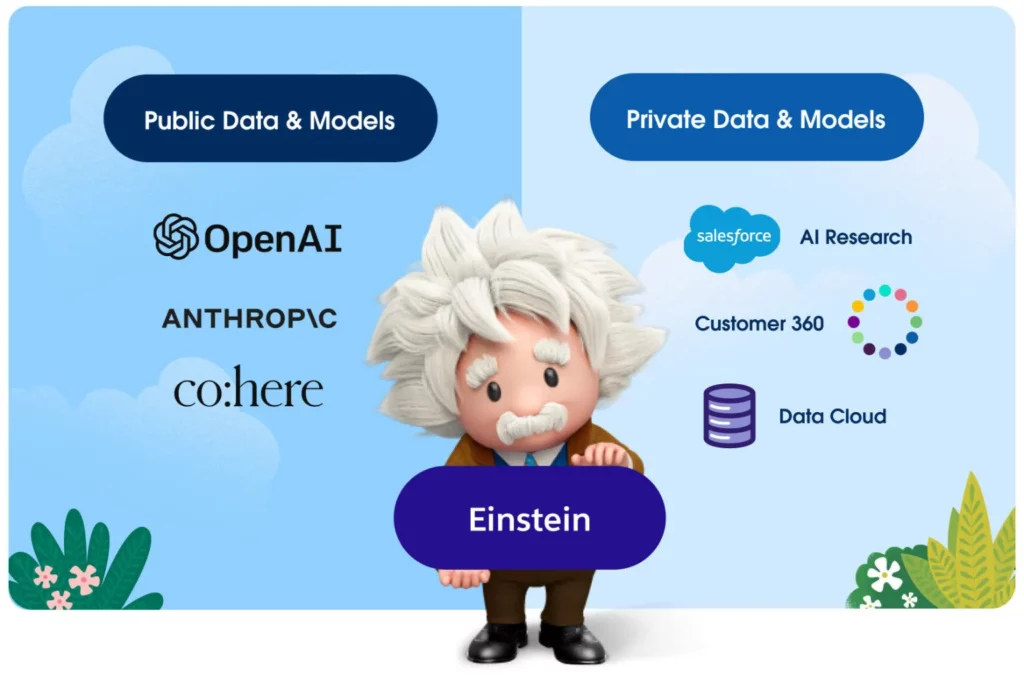
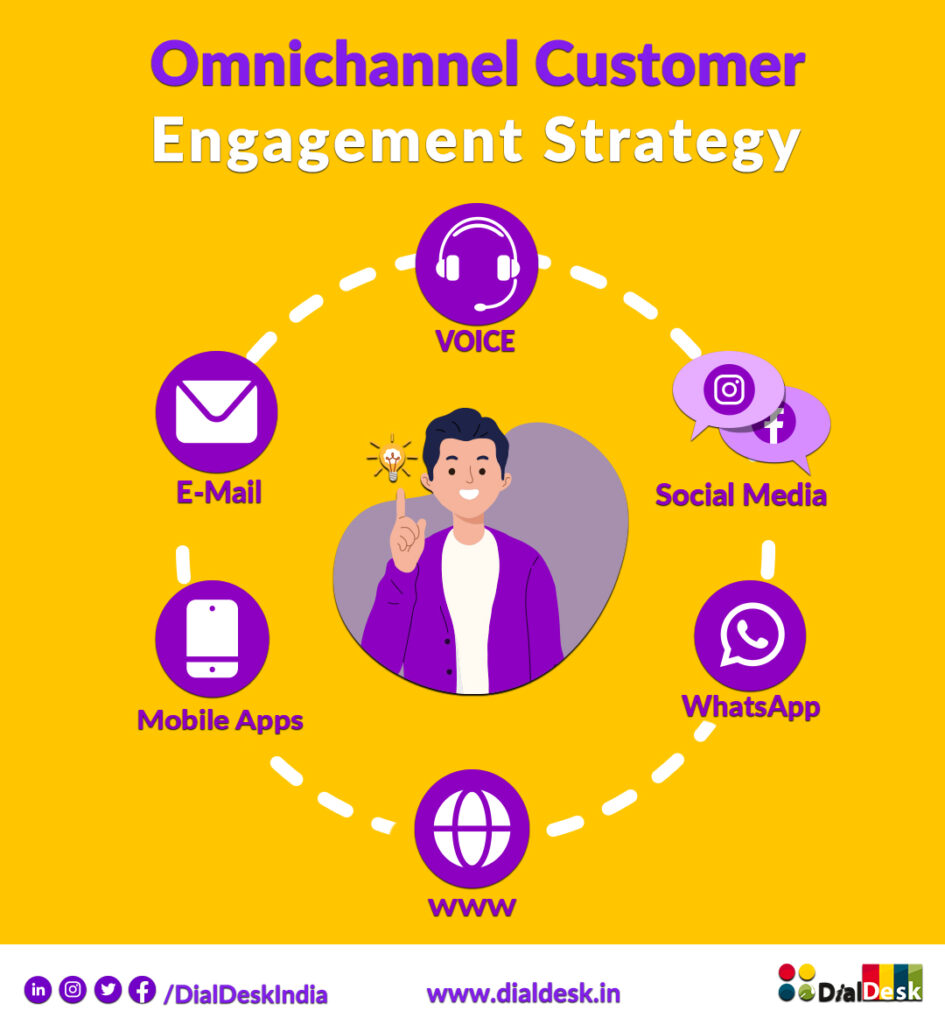
Leave a Reply